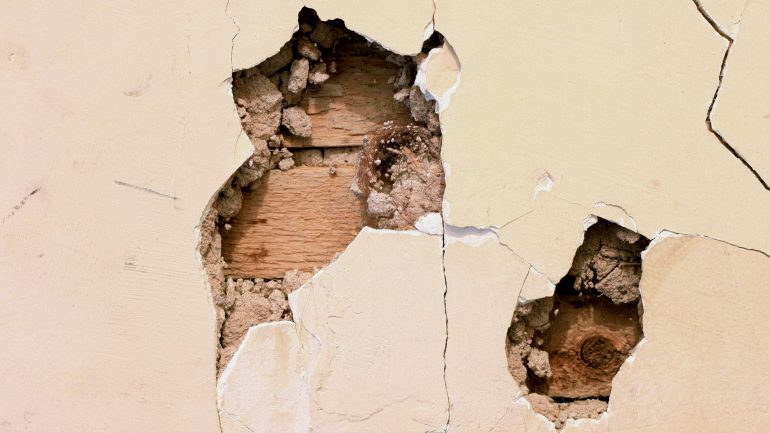Ann Stoney
The girls had met him in a paint store, this random guy with broad shoulders and blond hair down to his waist, now standing on a ladder in their kitchen. How had they convinced him? They were wearing short shorts, reasonably attractive. That might have been it.
They couldn’t do it by themselves, the girls had explained. They’d be happy to pay him somehow, although they weren’t sure how. And so he’d agreed, as if he were powerless in their presence, not knowing how he’d get paid—this random guy.
They were all three young, and this helped a lot. It helped that back then, there were no cellphones or apps and things happened out of nowhere on the spur of the moment. You could go to a paint store and pick up a guy and convince him to paint your kitchen. He’d brought a bottle of tequila and this helped a lot. There was some pot somewhere in the nooks and crannies of the kitchen table. The guy carved a hole out of an apple which served as a pipe because this was all they had. And a lighter. They could light the whole kitchen on fire. One of the girls considered this, the lighter and the oil-based paint, used to paint kitchens back then. A split second thought. They smoked and took swigs from the tequila, and the guy stood on top of the ladder as if he were surveying the world.
Then he said, Before we begin, I’d like to know something about you.
But that wasn’t part of the deal, the girls said. We’re not here to share information, we’re here to paint.
Fair enough, the guy said, because he found himself intrigued by the mystery of two girls who would share nothing.
We are just two girls, they said, and that is all. And you’re just a guy. We’re just the three of us in this kitchen with oil-based paint and pot and tequila and a lighter so we have to be careful that there are no accidents, even if we’re feeling woozy and light. I’ll catch you if you fall, the guy said. Although it might be hard as I’m standing on this ladder.
I think we should begin, one of the girls said. The other one put some music on. It will provide a certain atmosphere, she said. Right, the guy said. He handed them both a putty knife. Don’t open the paint yet. First, we spackle.
They began chipping away at the walls. The more they chipped away, the more holes that appeared. Clouds of dust gathered as they worked to fill them in. The guy seemed to know what he was doing. He’d point out this and that, hand them more spackle when they needed it. They were quick to follow his instructions, mimic his moves, but it didn’t seem to matter. Holes kept appearing.
Tell me just one thing, the guy said, as large pieces of sheet rock crashed from the ceiling, as bits of plaster flew from one wall to the next, drowning everything in sight. Just one thing about yourselves. I don’t mind telling you something about me. I was born in a foreign country. There you go. It’s easy.
It doesn’t seem fair, the girls said in unison, ripping old paint from their curls. It wasn’t part of the deal. We don’t think it’s necessary. And how long must we keep doing this? It looks like a bigger job than we originally thought.
You never quite know what lies underneath, the guy said. His blond hair had turned white with dust. Unfortunately, it’s essential to find out before you begin painting. He reached deep into his pockets for a larger putty knife.
It looks like our kitchen is being destroyed, one of the girls said. She was getting upset. It looks like the holes are getting bigger and bigger instead of smaller and smaller.
One thing always leads to another, the guy said. We’ll just keep spackling until the walls are smooth. It’s often the case that jobs like this tend to get out of hand.
You’ve done this often? the other one said. She was getting nervous. It seemed the guy knew more about this than they did, which is why they’d asked him to do it in the first place. But his knowledge of the situation was overwhelming, and she thought she might cry. She swallowed hard and filled up another hole, but the more she filled, the more the wall crumbled. The same was happening with the other girl, on and on, until they were wading up to their waists in grime and soot, their short shorts and thin hairless legs covered with dark specks. The guy stayed on top of the ladder filling up the holes, but the more he filled, the more holes appeared until finally he stopped.
Start talking, he said. It’s the only way to make them disappear.
I don’t see that as having anything to do with it, one of the girls said. She was wiping her eyes with grimy tissues, drowning her throat with the burn of tequila, as the water had all but disappeared from the kitchen faucet.
But the other girl knew he was right. He’d been right about everything else, so why not this? There was something about their reticence, their refusal to talk, that had led to their kitchen walls being full of holes.
And so she began.
When I was a little girl, maybe six, I dreamed I was stuck in this deep dark pit and it was impossible to climb out. It was as high as a mountain, as wide as a river and I couldn’t think straight.
When I was a little girl, the other one chimed in—not to be outdone—I dreamed there were witches poking at my back, the lower left side to be exact, and when I woke up it hurt all over.
I dreamed I was in a motel and couldn’t find my room key.
I dreamed I was stung by a school of jellyfish and the waves were twenty feet high and no one would help me because they didn’t think I was worth saving.
Once I was in a fancy resort with no bed to lie in.
Once I was standing inside a tree trunk with my arms spread wide, afraid it would collapse.
The girls kept talking and talking until they couldn’t stop. They spoke in a rush—first of dreams, then of families and childhoods, friends and secrets and a future they feared might break. They spoke of their minds spinning like cartwheels, words mixing together like so many forces of nature. Their words crawled across the floors of forests and oceans, sprinkled sorrow amongst trees of pine and birch, mingled with the drops of rain and snow. Their words turned into butterflies and birds, flew up the ladder and floated across the ceiling, filling the walls with the girls’ wildest dreams and scariest thoughts, but also the wishes they hoped would someday be granted by a force much larger than themselves.
All the while the guy listened and watched, for there was plenty to see. He watched the girls cry, scream, laugh and wail. Each sound they voiced made another hole disappear, until the kitchen, the street, the city, and finally the entire earth was rid of them—filled to its rim with their stories of hope and fear. He reasoned that this was payment enough. From his perch on top of the ladder he surveyed the world and smiled at how much fuller it looked. How green and lush the world had grown now that all its holes had been filled.
Ann Stoney is the most recent winner of the Danahy Fiction Prize. Her story will appear in the upcoming issue of the Tampa Review. She cut her teeth publishing in the Ladies Home Journal. Since then, her writing has appeared in PIF Magazine, Duende and Strands Lit Sphere, among others. She has been recognized in several contests, most recently placing in the finals in the 2019 Danahy Fiction Prize, and Cutthroat Journal’s 2019 Rick De Marinis Short Story Contest. When she is not writing, she is busy reviewing stories for the Bellevue Literary Review.



